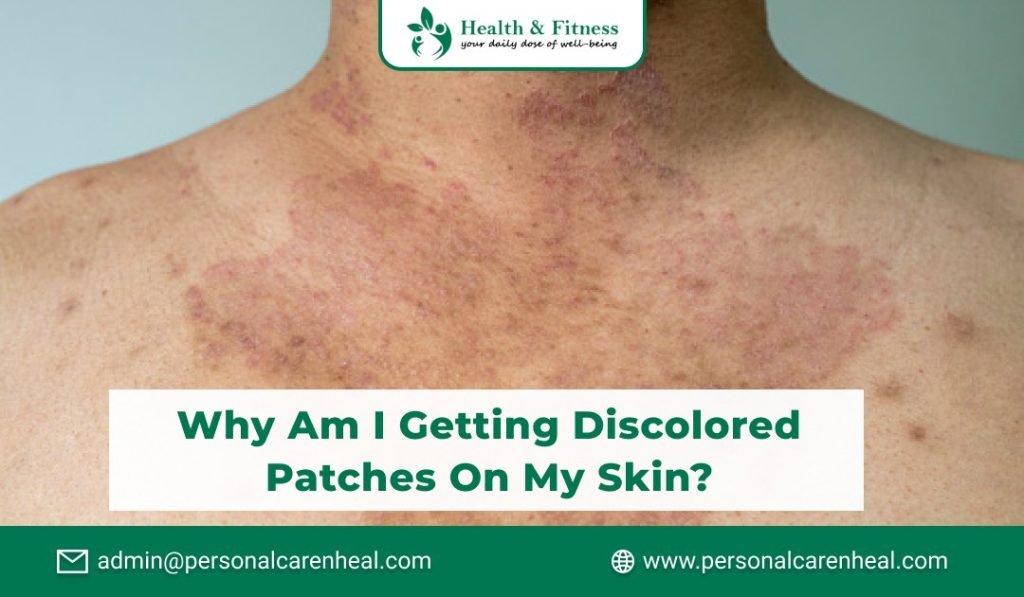
Any changes in your normal skin tone are referred to as skin discolouration. Infections, skin pigmentation disorders, birthmarks, and skin cancer are a few examples of the causes of skin discolouration. To know about discoloration of the skin, its causes and how you can get rid of this, continue reading this blog.
What is Discoloration of Skin Disease?
Any change in your skin that deviates from the colour of your skin naturally is referred to as skin discoloration. These spots of skin discoloration can be any colour and include:
red
tan
purple
pink
blue
black
brown
Although there are numerous natural reasons for discoloration of the skin on the neck, or other body parts such as birthmarks, some instances of discoloured skin may result from an underlying medical disease that has to be identified and treated.
Due to variations in melanin levels, discoloured skin patches can also frequently result in discoloration of the skin on chest or specific body areas. The chemical that gives the skin colour and shields it from the sun is called melanin. Different skin tones might result from melanin that is produced excessively.
Skin cancer is another risk that has to be immediately addressed with a dermatologist. We explain what can cause discoloration of the skin in this post, so you may talk to your doctor about any worries you may have.
Reasons for Discoloration of Skin
There are various causes of skin discoloration, ranging from minor problems to more severe medical conditions. These may include:
birthmarks, which are discolored skin marks that may be visible at, or shortly after, birth
pigmentation disorders, such as albinism, melasma and vitiligo
medical conditions, including psoriasis, rosacea, and Graves‘ disease
infections from harmful viruses, bacteria, or fungi
allergies, which may result in hives or eczema rashes
skin cancer, which grows from damaged skin cells that become cancerous
other causes, such as medication side effects and burns
Skin Discoloration Symptoms
The symptoms of discolored skin depend on the cause. The following are the most common symptoms of skin discoloration:
swelling
peeling skin
hypopigmentation
hyperpigmentation
grey or brown spots
blistering
skin itching
How is Skin Discoloration Diagnosed?
When you visit the hospital to get examined for skin discoloration, your doctor will look at your skin and ask you about changes you have experienced. Apart from this, they will ask you about other signs you may be noticing. Based on the doctor’s assessment during the physical exam, they may ask for further diagnostic testing to check why am I getting discolored patches on my skin. While the exact test may vary with each cause of discolored skin.
How is Skin Discoloration Treated?
Discolored skin from age spots won’t fade away with time. In fact, age spots won’t harm you, but some people may try to remove them for cosmetic reasons. Some treatments can include:
Prescription lightening creams can be used alone or with retinoids and steroids may fade the spots when they are used for several months.
Melanin granules and melanin-producing cells can be targeted with laser and intense pulsed light therapies without causing damage to the skin’s surface.
Cryotherapy also called freezing, involves applying liquid nitrogen to the age mark to remove the extra pigment.
Chemical peels can remove the uppermost skin layer.
Over-the-counter fade creams are also available on the market and can be used to reduce and lighten age marks and even skin tone. Most often, people ask ‘Do discolored skin patches go away?’ Well, it depends on condition of your skin.
When to See a Doctor?
If you notice skin discoloration, it is important to see a doctor. Discolored skin can be treated when identified promptly. Skin conditions like vitiligo and birthmarks need to be treated as soon as possible because birthmarks can also result in cancer.
Conclusion
If you experience or notice skin discoloration, make sure to consult a doctor before it gets worse. Many skin discoloration are not harmful, but unusual changes in the skin’s appearance need medical attention. Moreover, stay tuned with the latest health-related blogs by subscribing to Personal Care N Heal.
Also Checkout:
Zika Virus Second Case in Mumbai, 15-Year-Old Girl Affected
Highly Mutated Coronavirus Variant, BA.2.86 Now in 5 Countries


